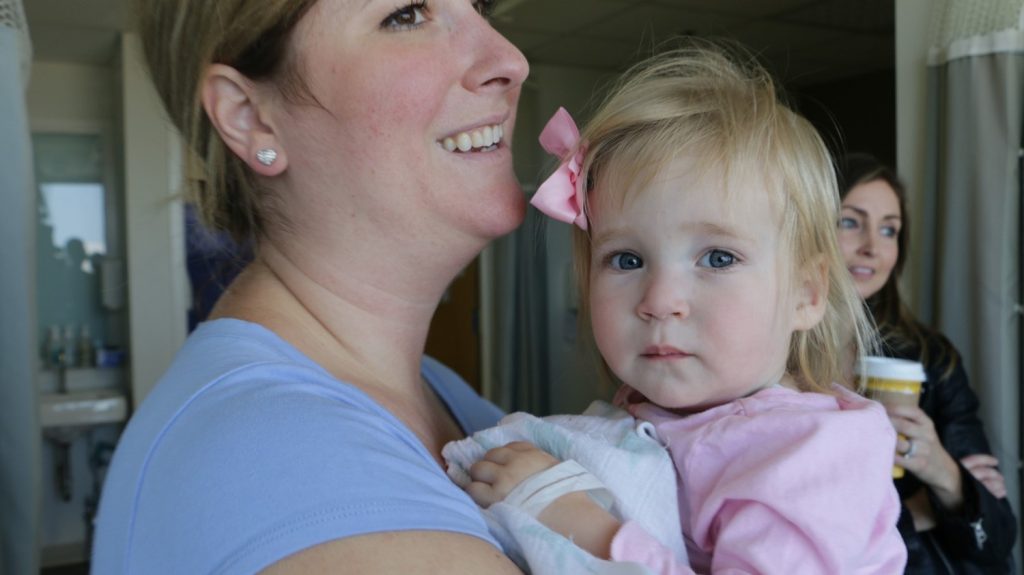It’s no surprise that women are some of the busiest people on the planet, especially working moms trying to manage important work-tasks, while also caring for critical responsibilities at home. In fact, 66 percent of women with children age 17 or younger work either full or part time, according to the U.S. Bureau of Labor Statistics. This clearly shows a dire need for women to find opportunities that will give them better work-life balance experiences.
Of course, adding to the frenzied and hurried lifestyles of working women, is the fact that women are often the predominant caregivers when it comes to providing support to loved ones, especially when that loved one is a sick child. Interestingly, women are 10 times more likely to take time off from work to stay home with their sick children – and – mothers are five times more likely to take their sick kids to doctor’s appointments, according to a recent Kaiser Family Foundation study.
But now imagine a real life working mom like Sara McGlocklin who has a child that’s not just sick, but is actually battling a fatal childhood disease.
“As a young girl I did not expect the challenges of balancing a career with being a caregiver, and I especially did not anticipate being a caregiver for a child with a fatal disease,” said Sara, an attorney and mother of 2 children. “Seven months ago our younger daughter Marian, at 18 months, was diagnosed with early signs of a fatal and progressive genetic disorder, Niemann-Pick Type C (NPC), for which there is no cure. In fact, if no cure is found in time NPC will cause dementia in Marian and the gradual loss of her ability to move, eat, speak and breathe. As you can imagine, the heartbreak of your child facing this suffering is monumental.”
In Sara’s day-to-day life she takes her daughter Marian to physical therapy twice a week, occupational therapy once a week, and speech therapy twice a week. For three months, she had to fly back and forth from Los Angeles to Chicago every other week so that Marian can take her experimental treatment that is injected into her spinal fluid under anesthesia to slow down the disease, which now is done closer to home in Los Angeles.
However, in the midst of juggling numerous responsibilities for her family and her daughter, what’s interesting is Sara has actually picked up some unexpected tips along the way to survive here journey with a smile (and lots of coffee) that could also help encourage other women:
- First and most importantly, spend time talking with friends who make you laugh. They are gold.
- Don’t Go it Alone. Ask for help when it’s needed. Striking the balance between independence and accepting support is difficult. However, no one wins points for running themselves into the ground, and while there are many things we can accomplish on our own – accepting the help of a babysitter, friend or neighbor for small tasks add up to big rewards. Ultimately, one of the most valuable things we have as mothers and professionals is our time. Sometimes saying, yes, when people offer help – and even voicing the need yourself brings not only a sense of teamwork, comfort and support – it is a gift of what we are all short of: time and energy to spend with our families and also meeting our needs and aspirations personally and professionally.
- I can do it. Listen to yourself and believe in yourself.
- Don’t dwell. Worries and anxieties creep in, let them go as much as possible. Take lots of deep breaths. Feel grateful for what we do have and not focus on what we do not.
- Make meaningful connections with other people or communities. Women are more likely to lose friendships in their thirties and forties than to gain and create meaningful ones. Similarly, and conversely, deep and meaningful connections to other people are a critical component to happiness.
While many women continue to face some level of stress and pressure when managing their daily lives, it’s important for us all to remember to be kind, be grateful, take a breath and don’t give up. After all, there is a light at the end of every tunnel — you just have to keep pressing through in order to get to it.
For more information about Marian or to help Marian fight for a cure for NPC, visit www.hopeformarian.org.

